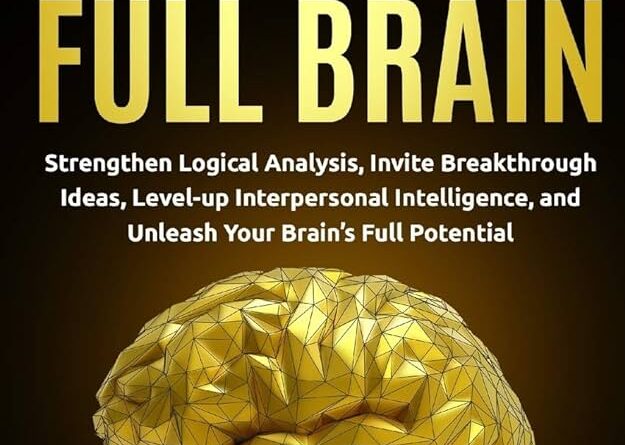
World Logic Day is celebrated annually on January 14th to promote the importance of logic in everyday life and decision-making processes. It is an international observance initiated by the United Nations Educational, Scientific and Cultural Organization (UNESCO).
The day recognizes the impact that logic has on various fields such as philosophy, mathematics, computer science, and artificial intelligence. It encourages individuals to engage in logical thinking, critical reasoning, and problem-solving to enhance their cognitive skills and make informed choices.
World Logic Day aims to foster a deeper understanding and appreciation for the role of logic in building a more rational and coherent world.
The Importance Of World Logic Day
Logic plays a crucial role in our everyday lives, influencing our decision-making, critical thinking, and problem-solving abilities. World Logic Day, celebrated annually on January 14th, aims to highlight the significance of logic and its impact on various aspects of our lives.
Logic is the foundation of rational thinking, allowing us to analyze situations, evaluate evidence, and draw valid conclusions. It helps us make informed choices in both personal and professional spheres, guiding us towards optimal solutions. By developing logical reasoning skills, we can navigate complex problems more effectively.
Furthermore, logic promotes clear communication and effective argumentation. It enables us to present our ideas coherently, support them with evidence, and counter opposing viewpoints. This skill is especially valuable in debates, negotiations, and collaborative decision-making processes.
In essence, logic empowers us to think critically and make sound judgments. It equips us with the ability to assess information objectively, identify fallacies, and avoid being swayed by emotion or bias. By recognizing the significance of logic in everyday life, we can enhance our cognitive abilities and become more rational, analytical thinkers.
Promoting Logical Thinking
World Logic Day is an annual celebration that promotes logical thinking and highlights the importance of developing logical reasoning skills. Logic plays a crucial role in various aspects of our lives, including decision-making processes and problem-solving abilities.
By utilizing logic in decision-making processes, individuals can make rational and informed choices. Logic allows us to analyze different options, consider the consequences, and evaluate the validity of arguments. It helps us avoid making impulsive decisions based on emotions or biases.
Logical thinking also enhances problem-solving abilities. It enables us to identify patterns, recognize relationships between different elements, and apply deductive and inductive reasoning. Through logical reasoning, we can break down complex problems into manageable parts and develop effective strategies to solve them.
Developing logical reasoning skills is essential in various fields such as mathematics, computer science, philosophy, and critical thinking. It helps individuals approach challenges with a structured and analytical mindset, leading to more efficient and effective problem-solving.
In conclusion, World Logic Day serves as a reminder of the importance of logical thinking in our daily lives. By honing our logical reasoning skills, we can make better decisions and become more adept problem solvers.
Celebrating World Logic Day
Understanding the origins and purpose of the day
World Logic Day is a global celebration dedicated to promoting the importance of logic in our everyday lives. It aims to acknowledge and honor the contributions of logicians, mathematicians, philosophers, and computer scientists in developing logical reasoning and critical thinking skills.
On World Logic Day, individuals and organizations engage in various logic-themed events such as puzzle-solving contests, logic games, and workshops. These activities help enhance cognitive abilities and problem-solving skills while fostering a sense of community among participants.
Another key aspect of World Logic Day is to spread awareness about the significance of logic in decision-making, innovation, and problem-solving. Through social media campaigns, educational initiatives, and public lectures, the day emphasizes the vital role that logic plays in various fields, including science, technology, and philosophy.
Logic Puzzles And Games
Logic puzzles are a fun and engaging way to challenge our brains and improve logical thinking skills. These puzzles come in different types and variations, allowing us to explore various problem-solving techniques. By engaging in logic games, we can enhance our cognitive abilities and develop critical thinking skills.
Playing logic puzzles offers numerous benefits. First and foremost, it helps to improve logical thinking and reasoning. It allows us to analyze information effectively, make connections between different concepts, and solve complex problems. Additionally, logic puzzles enhance our concentration and focus. They require us to pay attention to details and think logically step by step.
Moreover, logic games can be a source of entertainment while providing mental stimulation. They provide a mental workout, keeping our minds sharp and active. As we solve logic puzzles, we may also experience a sense of accomplishment and satisfaction, boosting our confidence.
Logic In Various Fields
Logic plays a fundamental role in various fields, including mathematics, science, computer programming and coding, as well as philosophy and argumentation.
In mathematics, logic is used to establish the validity of mathematical proofs and theorems. It helps to reason and draw conclusions based on given assumptions and axioms. Similarly, in science, logic enables scientists to formulate hypotheses, design experiments, and analyze data in a logical and systematic manner.
Logic serves as the foundation of computer programming and coding. It allows programmers to create algorithms and logical structures that determine the flow of instructions in a program. By applying logical operators and conditional statements, programmers can develop efficient and error-free software solutions.
In philosophy, logic provides a framework for analyzing and evaluating arguments. It helps philosophers to identify fallacies, clarify concepts, and construct valid arguments. Logic is essential in formal debates and discussions, enabling participants to present valid and sound reasoning to support their claims.

Credit: spotifyanchor-web.app.link
Logic In Everyday Life
In our everyday lives, logic plays a crucial role in various aspects, including personal relationships and decision-making. Applying logic allows us to evaluate information and opinions in a rational manner. By critically analyzing data, we can distinguish between facts and biased perspectives. Logical thinking helps us recognize fallacies in arguments, enabling us to identify flawed reasoning and make informed choices.
When it comes to personal relationships, employing logic can help us navigate through complex situations. It allows us to assess situations objectively, understand multiple perspectives, and communicate effectively. By relying on logic, we can approach conflicts with empathy and reason, finding constructive solutions.
| Applying logic in personal relationships |
|---|
| 1. Assess situations objectively |
| 2. Understand multiple perspectives |
| 3. Communicate effectively |
| 4. Approach conflicts with empathy and reason |
| 5. Find constructive solutions |
When evaluating information and opinions, logical reasoning allows us to separate credible sources from unreliable ones. By critically analyzing evidence, we can make well-informed decisions based on facts rather than biases or misinformation. Recognizing logical fallacies, such as ad hominem attacks or strawman arguments, empowers us to navigate through debates and discussions effectively.
Logic is a valuable tool for navigating the world we live in. By incorporating logical thinking into our everyday lives, we can make better choices and foster healthier relationships.
Logic And Creativity
The relationship between logic and creativity is often portrayed as a dichotomy – one emphasizing analytical thinking and the other valuing imagination and originality. However, these two seemingly opposing concepts are interconnected and can fuel each other’s growth. Logic provides a framework for structured reasoning and problem-solving, while creativity offers innovative approaches and fresh perspectives. By utilizing logical thinking in the process of creative problem-solving, individuals can analyze challenges, identify patterns, and devise systematic solutions. On the other hand, creativity can break established patterns, generating novel insights and sparking imaginative solutions. The synergy between these disciplines enables individuals to enhance their creative potential and unleash innovation. So, rather than viewing logic and creativity as opposing forces, we should recognize the symbiotic relationship they share, promoting a holistic approach to problem-solving and unlocking new possibilities.
Logic As A Life Skill
Logic plays a vital role in both personal and professional success. Incorporating logical thinking into our daily routines can enhance decision-making abilities and problem-solving skills. By analyzing situations objectively, individuals can make well-informed choices, leading to positive outcomes.
Logical thinking is particularly crucial in the workplace. Employers value employees who can critically evaluate information, identify patterns, and make rational decisions. Logical reasoning allows us to approach tasks systematically, ensuring efficiency and accuracy in our work. It also aids in effective communication and collaboration, as logical thinkers can articulate their thoughts clearly and engage in constructive discussions.
Developing logical thinking skills is an ongoing process. Engaging in activities such as puzzles, games, and brain teasers can strengthen logical reasoning abilities. Additionally, continuous learning, reading, and staying informed about various subjects contribute to the expansion of our logical thinking capabilities.
| Benefits of Logic in Daily Life: | – Enhanced decision-making abilities | – Improved problem-solving skills |
| Benefits of Logic in the Workplace: | – Efficient and accurate work | – Effective communication and collaboration |
Logic is a life skill that empowers individuals to navigate complex situations, make sound judgments, and achieve success in all aspects of life.
Frequently Asked Questions For World Logic Day
Which Day Is Celebrated As World Logical Day?
World Logical Day is celebrated on November 14th every year.
Is Logic Important For Modern Society?
Logic is crucial for modern society as it helps us make rational decisions, solve problems efficiently, and think critically. Its importance lies in ensuring coherence, consistency, and reliability in our reasoning, leading to better outcomes and progress.
What Is World Logic Day?
World Logic Day is a global celebration dedicated to promoting the importance of logic and reasoning in various areas of life, such as mathematics, philosophy, computer science, and more. It aims to raise awareness about the significance of logical thinking and its applications in problem-solving and decision-making.
When Is World Logic Day Celebrated?
World Logic Day is celebrated every year on January 14th. This date was chosen to honor the birthday of the renowned mathematician and logician Kurt Gödel, whose groundbreaking work in mathematical logic revolutionized the field and had a profound impact on various disciplines.
Conclusion
To celebrate World Logic Day, we have explored the significance of logic in our daily lives. Logic plays a crucial role in decision-making, problem-solving, and critical thinking. By understanding and applying logical reasoning, we can enhance our cognitive abilities and make smarter choices.
So let’s embrace the power of logic and continue to sharpen our minds for a more rational and logical world.






